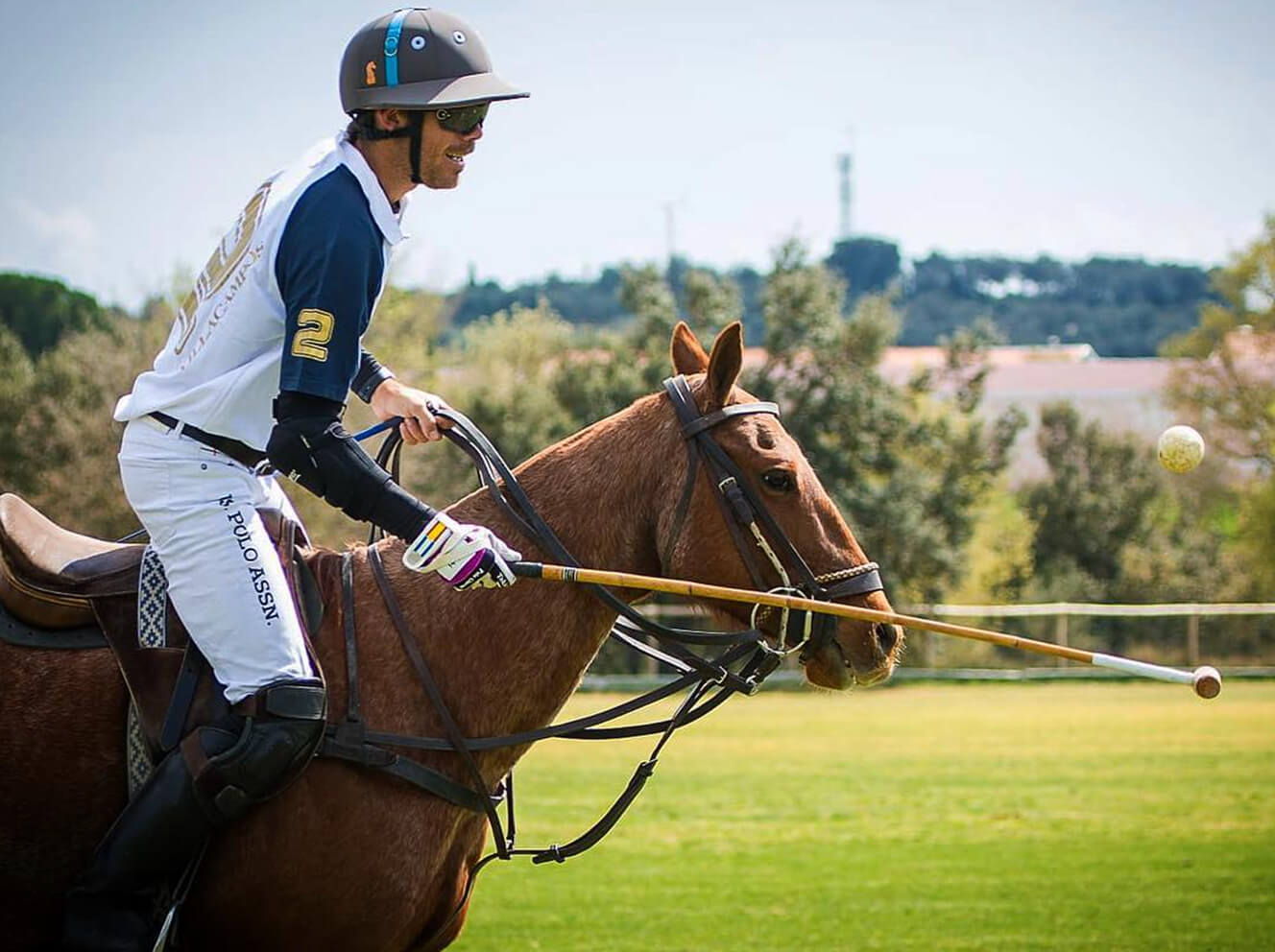Nicolás Ruiz Guiñazu is a champion polo player. Known better by his nickname, Tuki, the 31-year-old played in numerous countries — Spain, France, Germany, Italy, Australia, Azerbaijan, Pakistan and the Netherlands — on his way to the 2022 World Cup in Palm Beach, Fla., where his Spanish team triumphed in the final over the U.S.
That victorious journey was possible thanks to one important trip Tuki made to the U.S. when he was three years old to see Harland Winter, MD, the Director of the Pediatric Inflammatory Bowel Disease Center at Mass General for Children (MGfC). Young Tuki had been diagnosed with ulcerative colitis at home in Manzanares, Argentina, and the family was at a loss about how to treat him.
“We had never heard of this disease,” says César Ruiz Guiñazú, Tuki’s father and a fellow professional polo player. “The local doctors had very little experience with the diagnosis since it’s not common in Argentina. They told us the best thing would be to go to Boston and consult with a certain doctor — Dr. Winter.”
“Dr. Winter saved my life,” Tuki adds. “I owe him everything.”
Compassionate Care, an Ocean Away
Back in the late 1990s, the Guiñazus spent half the year in Argentina and half the year in Europe for César’s career as a professional polo player. While they were in Europe, they decided to seek opinions from other specialists. They saw a doctor in Italy, who referred them to a doctor in Germany for an alternative treatment. That treatment didn’t improve Tuki’s condition; the family finally met with another German doctor who specialized in ulcerative colitis. That doctor told the family the same thing as the Argentine doctors: call Dr. Winter.
“We decided to contact [Dr. Winter] immediately,” César says. When he learned that Dr. Winter would be at a conference in Germany the following week, close to where the family was staying, they were overwhelmed with relief and gratitude. The family met Dr. Winter there, where he observed Tuki and advised them to book a trip to see him again at Mass General.
Becoming Part of the Healing Process
The Guiñazus traveled to Mass General for Children several times for various medical studies and therapies, even spending some Christmases in Boston. César remembers Dr. Winter bringing homemade cakes during those holidays to lift their spirits.
“When you become the doctor of a patient with a chronic disease, you truly become part of their healing process,” Dr. Winter says. “You share knowledge about their physiology and the science of the condition, but you have to put that in the context of the patient and their needs. It has to be a holistic approach.”
A New Direction
After several years, Dr. Winter and the Guiñazus realized the therapies were no longer working for Tuki. Based on Tuki’s condition, Dr. Winter recommended an ileoanal anastomosis surgery with Daniel Doody, MD, now Mass General’s Director of Surgical Education in Pediatric Surgery. The operation would remove the colon and rectum and use the end of the small intestine, known as the ileum, to form an internal pouch that would allow waste to pass through his body. But at age 5, Tuki would be one of the youngest patients to undergo the surgery — a new method at the time.
“We told Dr. Winter that we wanted him to treat Nicolás as if he were his own son, and that he should decide, since we were not qualified to make a decision of this magnitude,” César says. “And he did so.”
César still remembers Tuki’s first words to him, his mother Carolina and his baby sister Delfina after the successful surgery: “Now, I am finally going to be able to eat oranges.”
On the Road to a Championship
After adapting to his new condition over the subsequent six months, Tuki has, to this day, been able to effectively manage his ulcerative colitis, sometimes with Dr. Winter’s help from afar. Many more treatments for ulcerative colitis have emerged over the last 20 years, Dr. Winter says, with new medications providing an alternative to traditional steroids. Earlier this year, Tuki had a flare-up in Pakistan and sent Dr. Winter a message.
“He responded to me straightaway, with helpful information about what to do and the medicine I needed,” Tuki says. “I recovered in one week. What I appreciate most of all is that he’s always been there for me, even when I hadn’t been in touch for 10 years.”
“It’s thanks to him that I am still here and thriving enough to have become a polo world champion,” adds Tuki, who recently celebrated his engagement to his fiancée, Jess.
“Young children with ulcerative colitis who have to have surgery — or even those who don’t and have to live with chronic illness — run the risk of seeing themselves as being compromised and not living up to their potential,” Dr. Winter says. “We try to impress upon families that these are diseases they can live with, and that they can achieve their potential. Just because they have this condition doesn’t mean they can’t live a normal life. Clearly, Tuki’s a great example of that.”
To learn more about how to support the Pediatric Inflammatory Bowel Disease Center, please contact us.

